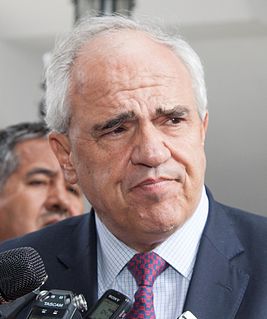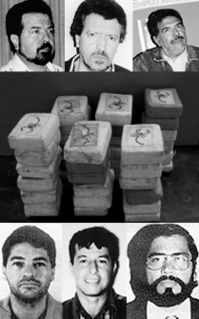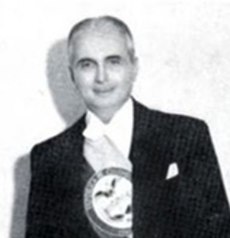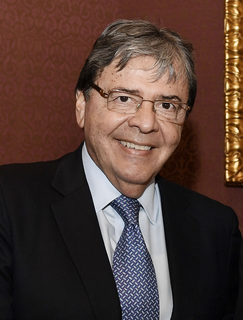| |||||||||||||||||||||||
| Turnout | 34.0% (first round) 43.3% (second round) | ||||||||||||||||||||||
| |||||||||||||||||||||||
Winner by department, Second Round | |||||||||||||||||||||||
| |||||||||||||||||||||||
 |
|---|
| This article is part of a series on the politics and government of Colombia |
Constitution |
Legislature |
Executive |
Related topics |
Presidential elections were held in Colombia on 29 May 1994, with a second round on 19 June. [1] The result was a victory for Ernesto Samper of the Liberal Party, who received 51.1% of the vote in the run-off. [2]

Colombia, officially the Republic of Colombia, is a sovereign state largely situated in the northwest of South America, with territories in Central America. Colombia shares a border to the northwest with Panama, to the east with Venezuela and Brazil and to the south with Ecuador and Peru. It shares its maritime limits with Costa Rica, Nicaragua, Honduras, Jamaica, Haiti, and the Dominican Republic. Colombia is a unitary, constitutional republic comprising thirty-two departments, with the capital in Bogota.

Ernesto Samper Pizano is a Colombian politician. Samper is a member of the aristocratic, wealthy and influential Samper family. He served as the President of Colombia from 1994 to 1998, representing the Liberal Party. He currently serves as the Secretary General of the Union of South American Nations (UNASUR). He was involved in the 8000 process scandal, which takes its name from the folio number assigned to it by the chief prosecutor's office. The prosecutor charged that money from the Cali Cartel was funneled into Samper's presidential campaign to gain his success in what would have been a very close race after he failed to win by a majority during the first round. The Colombian House of Representatives acquitted Samper with a vote of 111 to 43, precluding the process.

The Colombian Liberal Party is a centrist and social liberal political party in Colombia. It was founded as a classical liberal party but later developed a more social-democratic tradition, joining the Socialist International in 1999.
Samper's election was tainted by accusations during the campaign and afterwards that his Liberal Party had sought funding from the Cali Cartel. This resulted in the Proceso 8000 investigation, which found several of Samper's close associates within the party guilty, although Samper himself was absolved of any wrongdoing. [3] However, the scandal badly damaged his presidency and his party, and resulted in a grand coalition of opposition politicians standing against and defeating the Liberal Party at the following election in 1998; Samper was Colombia's last Liberal president.

The Cali Cartel was a drug cartel based in southern Colombia, around the city of Cali and the Valle del Cauca Department. Its founders were the Rodríguez Orejuela brothers, Gilberto and Miguel, and José Santacruz Londoño, also known as "Chepe". They broke away from Pablo Escobar and his Medellin associates in the late 1980s when Hélmer Herrera, also known as "Pacho", joined what became a four-man executive board that ran the cartel.
8,000 Process was the unofficial name of the legal investigation of events surrounding accusations that the Colombian Liberal Party candidate Ernesto Samper's 1994 campaign for President of Colombia was partially funded with drug money. "8,000 Process" or "Procedure 8,000" was the case number issued by the Prosecutor General's Office.













